Imperial Boundaries
Imperial Boundaries is a study of imperial expansion and local transformation on Russia's Don Steppe frontier during the age of Peter the Great. Brian Boeck connects the rivalry of the Russian and Ottoman empires in the northern Black Sea basin to the social history of the Don Cossacks, who were transformed from an open, democratic, multiethnic, male fraternity dedicated to frontier raiding into a closed, ethnic community devoted to defending and advancing the boundaries of the Russian state. He shows how by promoting border patrol, migration control, bureaucratic regulation of cross-border contacts and deportation of dissidents, Peter I destroyed the world of the old steppe and created a new imperial Cossack order in its place. In examining this transformation, Imperial Boundaries addresses key historical issues of imperial expansion, the delegitimization of non-state violence, the construction of borders, and the encroaching boundaries of state authority in the lives of local communities.
- Rejects previous models of aggressive Russian imperial expansion to explain why Cossacks were both advocates and opponents of imperial expansion
- A major contribution to the comparative study of frontiers and borderlands
- Will appeal to scholars of early modern Russian history, early modern European state-building and imperial expansion
Reviews & endorsements
"...well written and soundly argued..." -Choice
"The author is to be congratulated. This engaginly written, broadly researched, and analytically rigourous study should be of interest to historians of Russia as well as to scholars interested in the transition of early modern frontier societies into the modern age." -Peter Holquist, Journal of Interdisciplinary History
"This is an important and stimulating book." -Carol Stevens, The Russian Review
"Boeck has produced an accessible narrative of not only Russian empire building but also more generally the collapse of an unique borderland, which he has situated in a thoughtful discussion of relevant theory and historiography." -Matthew P. Romaniello, The Historian
"...a very competent book on a very narrow subject: a history of the Don Cossack Host at the time of Peter the Great." -Michael Khodarkovsky, American Historical Review
"The book not only makes an important contribution to our understanding of Russia as empire, but also tells us much about a particular region and its population, especially about the shift of social identities in early modern Russia." -H-HistGeog
"In a well-researched and well-written monograph, Brian Boeck offers a new interpretation of the Cossacks on the steppe frontier over the period in which Muscovy was transformed into the Russian Empire." -David Moon, Journal of Modern History
"...a final merit of the book is that it whets the reader’s appetite for the work of Bruce Menning, Shane O’Rourke and Peter Holquist on the history of Don Cossacks in later periods." -David Saunders, European History Quarterly
Product details
November 2009Hardback
9780521514637
270 pages
229 × 152 × 19 mm
0.57kg
Available
Table of Contents
- Introduction
- 1. Beyond borders, between worlds: Russian Empire and the making of the Don Steppe Frontier
- 2. People and power on the frontier: liberty, diversity, and de-centralization in the Don region to 1700
- 3. A middle ground between autonomy and dependence: the raiding economy of the Don Steppe Frontier to 1700
- 4. Boundaries of integration or exclusion? Migration, mobility, and state sovereignty on the southern Frontier to 1700
- 5. Testing the boundaries of imperial alliance: co-operation, negotiation and resistance in the era of Razin (1667–81)
- 6. Between Rus' and Rossiia: realigning the boundaries of Cossack communities in a time of migration and transition (1681–95)
- 7. The era of Raskol: religion and rebellion (1681–95)
- 8. Incorporation without integration: the Azov Interlude (1695–1711)
- 9. From frontier to borderland: the demarcation of the Steppe and the delegitimation of raiding (1696–1710)
- 10. Boundaries of land, liberty, and identity: making the Don region legible to imperial officials (1696–1706)
- 11. The Bulavin uprising: the last stand of the old Steppe (1706–9)
- 12. Reshaping the Don in the imperial image: power, privilege, and patronage in the post-Bulavin era (1708–39)
- 13. Closing the Cossack community: recording and policing the boundaries of group identity (1708–39)
- 14. A borderline state of mind: the closing of the Don Steppe frontier (1708–39)
- Afterword.

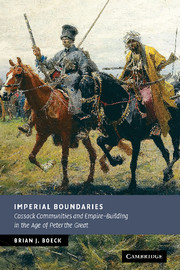
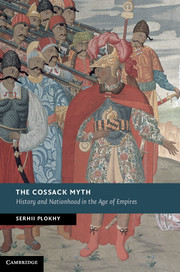
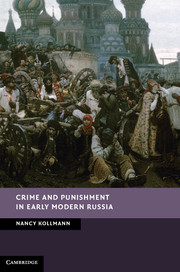
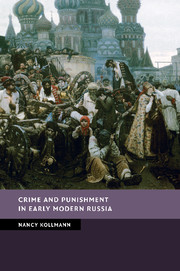
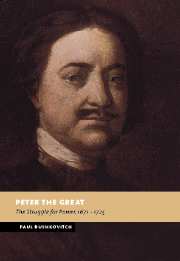



.jpg)
.jpg)